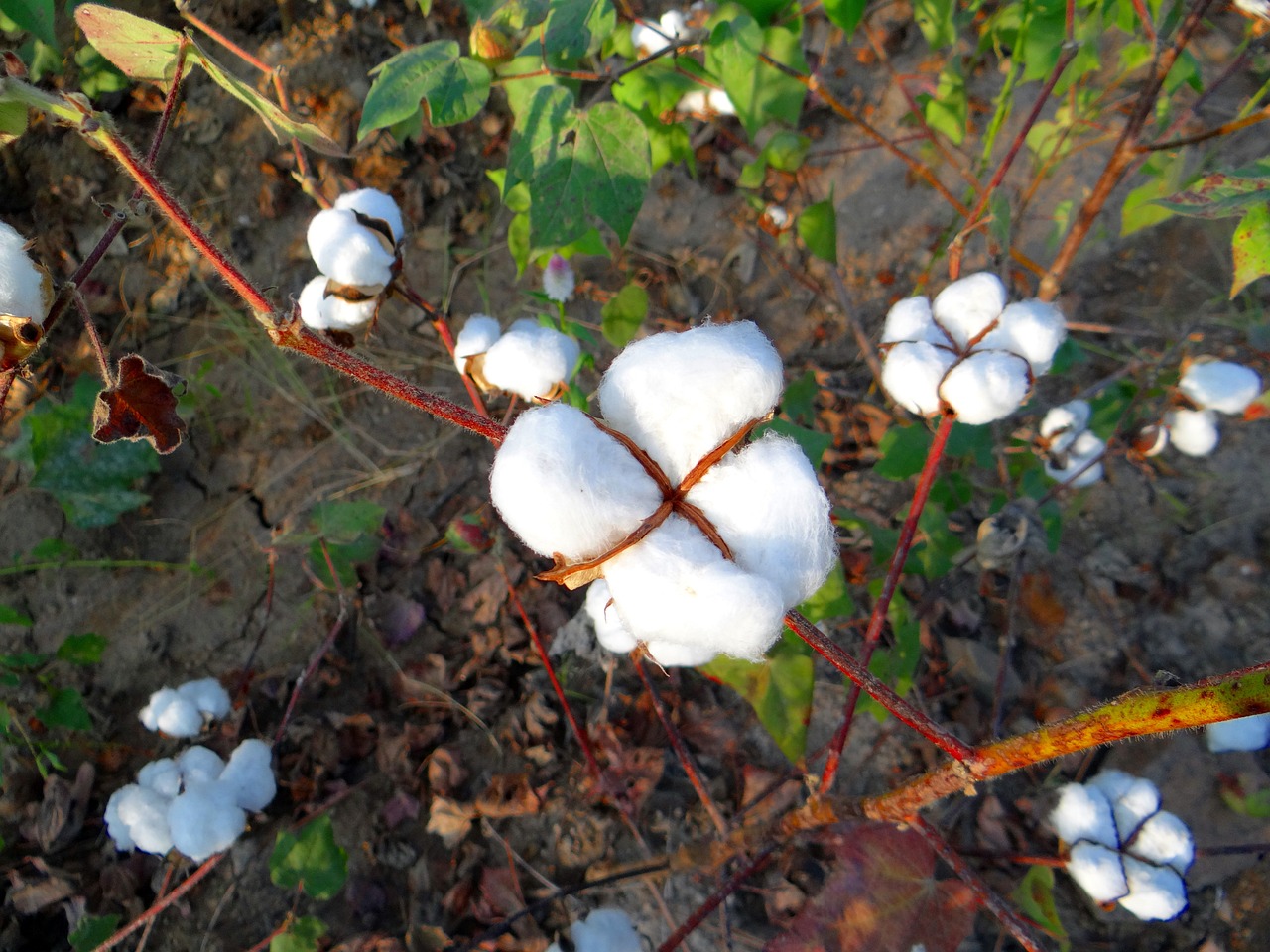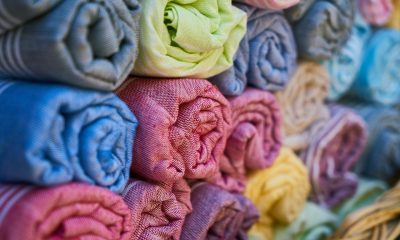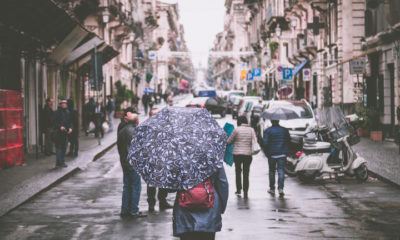Impact Investing
H&M and Inditex Question the Firm that Certifies Responsible Cotton Production
The credibility of Better Cotton, a certification ensuring fair and sustainable cotton production, is questioned following allegations of deforestation and human rights abuses in Brazilian cotton farms certified by the organization. Inditex and H&M demand explanations, emphasizing the potential impact on the entire textile industry. Better Cotton promises an investigation, while both companies stress the need for sustainable certifications.

The giants of the textile industry are at a crossroads. The main signature that certifies that the cotton production is fairly, both socially and environmentally, is being questioned. This is Better Cotton, which analyzes and evaluates cotton production models and which until now has been used by the main international retail groups to assure customers of the responsible origin of this raw material. Among them, Inditex or Hennes & Mauritz (H&M).
Both the Spanish and Swedish groups have asked Better Cotton for explanations, according to what both companies told elDiario.es, although the relevance of the questioning is more significant, because it would affect the entire industry.
Read more about Better Cotton and cotton production in Brazil, and find the most important business news of the day with the Born2Invest mobile app.
The origin is in an investigation by the organization Earthsight, which in the middle of last year questioned cotton production in Brazil
“Earthsight has discovered that the cotton used by fashion giants H&M and Zara is linked to large-scale deforestation, land grabbing, human rights abuses and violent territorial conflicts” in Brazil, lists this firm.
“But H&M and Zara do not directly buy this cotton,” explained Earthsight in its analysis. “Like most Western fashion giants, they source their clothing primarily from Asia-based suppliers. These companies transform cotton into finished products that we find in clothing stores,” he added. “By tracking thousands of shipping records, our investigators discovered that H&M and Zara suppliers source cotton grown in the western part of the Brazilian state of Bahia by two of the country’s largest producers: SLC Agrícola and Grupo Horita.”
After these criticisms, Better Cotton would have committed to carrying out an analysis of what happened, which has not yet been published, and for which the textile groups are now asking for explanations, according to both companies.
Complaint by letter regarding the responsible cotton production
The company that owns Zara, Bershka and Pull & Bear has requested by letter from Better Cotton to clarify what happened, according to the specialized media Modaes. In that letter, the Galician company focuses on the fact that Earthsight denounced “serious practices (including the usurpation of land, illegal deforestation and violent acts against local communities) by two Brazilian cotton producers with the Better Cotton standard on farms located in the State of Bahia, Brazil.”
“If the veracity of its content is confirmed, the practices denounced in the Earthsight report place the cotton coming from these producers completely outside the standards required by Inditex and expected by its suppliers and customers around the world,” he justified.
“Your organization informed us of its intention to investigate these events and determine whether there were indeed irregularities in the granting of the aforementioned certifications, as well as to report its conclusions before the end of March 2024,” indicated the Arteixo company in the signed letter. by Javier Losada, director of Sustainability of the group, and addressed to the CEO of Better Cotton, Alan McClay.
Inditex demands to “urgently know the results” of an independent analysis commissioned by Better Cotton and the “data from the external auditor who intervened.” Also, “the findings found, the measures that allow them to address the problems identified and those other measures that they plan to adopt to strengthen the Better Cotton standard.” And that response, “will be key to the assessment of possible limitations to the consideration of the Better Cotton standard in our supply system,” he summarized.
Asked about this letter, Inditex assured that it takes “the accusations against Better Cotton very seriously, which strictly prohibits practices such as land usurpation and deforestation in its requirements.” For this reason, explained the company founded by Amancio Ortega, “we have asked the organization to share as soon as possible the result of the independent research that has been carried out and the necessary measures to guarantee a sustainable cotton certification that respects the highest standards.”
In a very similar vein, H&M said that “the conclusions of the Earthsight report are very worrying and we take them very seriously.” “The H&M Group was one of the first brands to adopt 100% organic, recycled or sustainably sourced cotton,” qualifications that would be called into question if the certifications regarding its fair origin are not correct.
“We are in close dialogue with Better Cotton to monitor the outcome of the investigation and the next steps that will be taken to strengthen and review their standard. We therefore kindly refer to Better Cotton for more information on the next steps being taken as a result of their research,” adds the Swedish group.
The problems of cotton production
Better Cotton has not responded to elDiario.es about the requests from Inditex and H&M, but months ago it already responded, also by letter, to Earthsight, according to what appears on this organization’s website. In it, he assured that the questioning was an “opportunity to evaluate the situation and determine if there are ways to continue improving and strengthening our approach.” “We are also interested in sitting down with Earthsight and discussing these issues and their suggestions for constructive action in more detail.”
In that letter, Better Cotton summarized that it was aware of three cotton farms owned by the questioned companies and that these were certified by a local partner, Abrapa. Also, that this firm had not detected any non-compliance with the Responsible Brazilian Cotton (ABR) quality seal and that the companies denied the accusations. However, it committed, in this letter, to carry out an independent investigation and to revoke the responsible cotton certificate if the result was not positive.
Better Cotton explained on its website that it was created in 2005 as an initiative promoted by companies – including Adidas, H&M, GAP and IKEA – and non-governmental organizations, such as WWF, to promote the sustainability of the sector and that from there it derived a global standard, certification of responsibly cotton production. According to the latest annual report published, in the 2021-2022 campaign, it worked with 60 local organizations and more than 2.8 million farmers. Of them, 2.2 achieved Better Cotton certification.
The origin and doubts about how cotton is produced have been on the table for some time. One of the main ones affects China, due to accusations that forced labor has been used by people from the Uighur minority, forced to work in the province of Xinjiang, one of the main regions where this raw material is grown.
__
(Featured image by sarangib via Pixabay)
DISCLAIMER: This article was written by a third party contributor and does not reflect the opinion of Born2Invest, its management, staff or its associates. Please review our disclaimer for more information.
This article may include forward-looking statements. These forward-looking statements generally are identified by the words “believe,” “project,” “estimate,” “become,” “plan,” “will,” and similar expressions. These forward-looking statements involve known and unknown risks as well as uncertainties, including those discussed in the following cautionary statements and elsewhere in this article and on this site. Although the Company may believe that its expectations are based on reasonable assumptions, the actual results that the Company may achieve may differ materially from any forward-looking statements, which reflect the opinions of the management of the Company only as of the date hereof. Additionally, please make sure to read these important disclosures.
First published in elDiario.es. A third-party contributor translated and adapted the article from the original. In case of discrepancy, the original will prevail.
Although we made reasonable efforts to provide accurate translations, some parts may be incorrect. Born2Invest assumes no responsibility for errors, omissions or ambiguities in the translations provided on this website. Any person or entity relying on translated content does so at their own risk. Born2Invest is not responsible for losses caused by such reliance on the accuracy or reliability of translated information. If you wish to report an error or inaccuracy in the translation, we encourage you to contact us

-

 Impact Investing6 days ago
Impact Investing6 days agoCDP Approves €1.5 Billion Package to Boost Industry, Renewables, and International Development
-

 Crypto2 weeks ago
Crypto2 weeks agoUniswap and BlackRock Partner to Launch BUIDL in DeFi
-

 Impact Investing19 hours ago
Impact Investing19 hours agoThe Sustainability Revolution: Driving a Net-Zero, Nature-Positive Economy
-

 Biotech1 week ago
Biotech1 week agoNew Molecular Clues Explain Aggressive Neuroblastoma and Point to Targeted Treatments






















